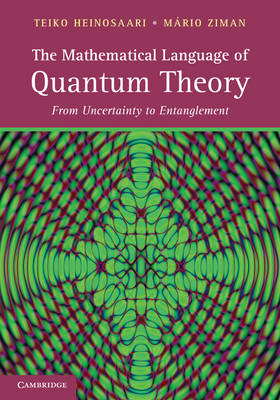Currently, there are PhD positions open at our research center
starting in September 2025. If interested, please get in contact before 10/03/2025 with a potential PhD advisor (attach your cv, motivation letter and provide contact to someone who may potentially write a recommendation letter for you) and follow his/her instructions. We are sharing your applications, so might be you will be redirected to someone else. Also if you are uncertain about the advisor, or topic, just choose randomly and your application will be processed in the best possible way.
Below are our suggestions for PhD topics for this year.
About PhD study with us: The length of the PhD study is 4 years during which PhD student receives stipend starting with net(=tax-free) stipend 1200 eur/month and increasing above 1400 eur/month after midterm dissertation exam closing the education half of the PhD program. All depends on the performance. In particular, the mid-term exam consists of the oral examination from the the studied subjects and the defense of the written PhD research project defining research goals and methods of the PhD student. The research half of the PhD program is ending with the defense of the PhD dissertation. In order to be accepted for the defense the student is expected to publish at least two research papers.
The selection process is relatively complex and happens in three steps:
1. Selection by the advisors of Research Center for Quantum Information. (March)
2. Selection process by Institute of Physics committee among candidates applying for common institutional funding. (April)
3. Admission process at the university by the dedicated PhD program committee. (June)
Depending on the research performance and availability of resources we are offering additional funding in form of renumeration. Phd students are provided with reasonable budget for research visits and to attend schools, or conferences. Office and computer facilities are provided. The institutional accommodation is offered for approx 120 eur/month in students dormitory and let us note that living expenses in Bratislava are lower than in "West" European cities (google it, or do not hesitate to ask our current PhD students).
Below are our suggestions for PhD topics for this year.
- Djeylan Aktas
- Quantum optics systems for fundamental studies and applications ΞΞΞ The goal of this thesis work will be to leverage quantum resources that came available to experimentalists since the second quantum revolution to either investigate and better understand fundamental concepts of the quantum theory or demonstrate potentially new applications for future quantum technologies. This work will be achieved through the realization of several photonic-based experimental setups: single photon sources, generation of entanglement, spectroscopy-based stabilization schemes for feedback loop and more.
- Andrej Gendiar Send your application to andrej.gendiar@savba.sk.
- Denis Kochan (jointly with Peter Staňo) Send your application to denis.kochan@savba.sk
- Michal Sedlák Send your application to michal.sedlak@savba.sk.
- Mário Ziman
- Certification of performance of quantum devices
ΞΞΞ
Goal: To understand limitations of quantum experiments to test quantum theory.
Annotation: Critical reconsideration on assumptions on the interpretation of recorded data and certification of quantum features. The exact problem depends on the preferences of PhD student. - Quantum communication network ΞΞΞQuantum communication infrastructures are under intensive construction. Even if not fully functional yet they open several interesting theoretical challenges and opportunities. Our goal is to contribute to their theoretical development by investigating the efficiency and robustness of quantum communication protocols, and design novel network protocols and algorithms. The particular research task will depend on preferences of the student.
- Mitigating errors and complexity by noisy noisy unversal gates ΞΞΞ The circuit model of quantum computation is based on unitary gate decomposition, however, it is not necessary to perform the full unitary transformation in order to evaluate a function f. Our goal is to explore the possibility of using noisy gates to accomplish this task.
- Certification of performance of quantum devices
ΞΞΞ
Goal: To understand limitations of quantum experiments to test quantum theory.
About PhD study with us: The length of the PhD study is 4 years during which PhD student receives stipend starting with net(=tax-free) stipend 1200 eur/month and increasing above 1400 eur/month after midterm dissertation exam closing the education half of the PhD program. All depends on the performance. In particular, the mid-term exam consists of the oral examination from the the studied subjects and the defense of the written PhD research project defining research goals and methods of the PhD student. The research half of the PhD program is ending with the defense of the PhD dissertation. In order to be accepted for the defense the student is expected to publish at least two research papers.
The selection process is relatively complex and happens in three steps:
1. Selection by the advisors of Research Center for Quantum Information. (March)
2. Selection process by Institute of Physics committee among candidates applying for common institutional funding. (April)
3. Admission process at the university by the dedicated PhD program committee. (June)
Depending on the research performance and availability of resources we are offering additional funding in form of renumeration. Phd students are provided with reasonable budget for research visits and to attend schools, or conferences. Office and computer facilities are provided. The institutional accommodation is offered for approx 120 eur/month in students dormitory and let us note that living expenses in Bratislava are lower than in "West" European cities (google it, or do not hesitate to ask our current PhD students).


